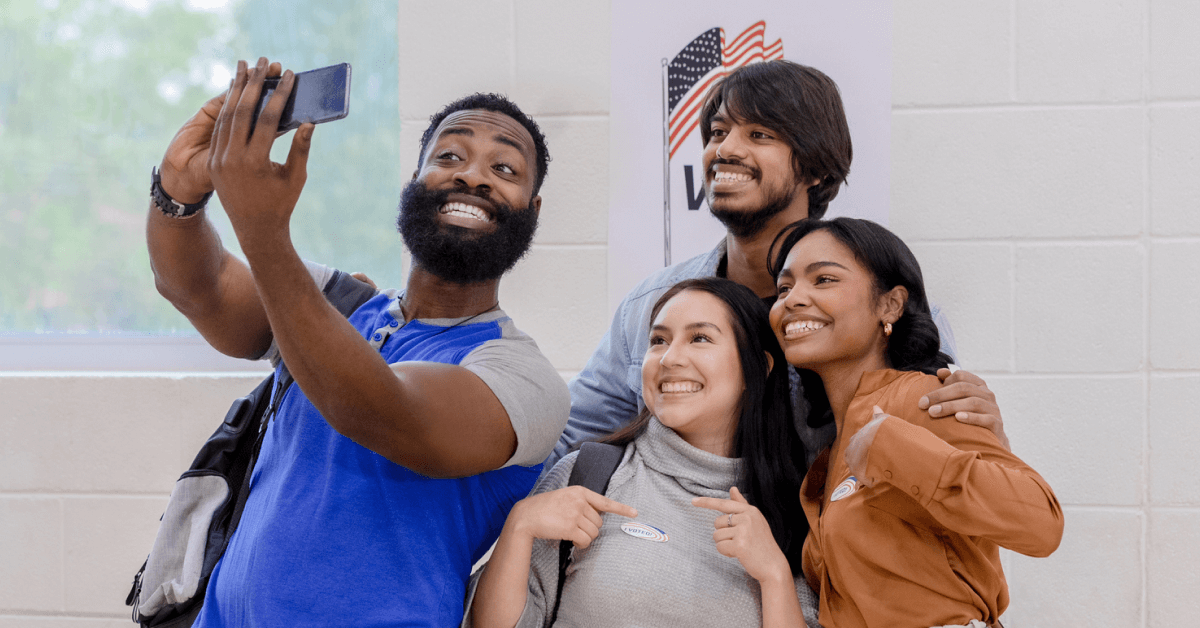In today’s digital age, social media plays a crucial role in political campaigns, especially when it comes to engaging younger voters. With platforms like TikTok, Instagram, Twitter, and Snapchat dominating the online landscape, politicians must adapt their strategies to effectively connect with this demographic. Here are some key strategies that can help politicians resonate with younger voters through social media.

Table of Contents
Toggle1. Understand the Platforms
Different social media platforms attract varying demographics and have unique characteristics. For example:
- TikTok: Known for its short, engaging videos, TikTok has quickly become a hub for younger audiences. Politicians can use this platform for creative storytelling, humor, and challenges that align with their political messages.
- Instagram: With its visual focus, Instagram is ideal for sharing compelling images, stories, and reels. Politicians should leverage high-quality visuals, infographics, and behind-the-scenes content to create a relatable image.
- Twitter: While its user base is broader, Twitter remains popular among younger audiences for real-time news updates and engagement. Politicians can use Twitter for quick updates, responding to trends, and engaging in conversations.
2. Create Authentic Content
Younger voters value authenticity over polished, traditional campaign messaging. Politicians should focus on creating genuine content that reflects their true selves and beliefs. Here are some tips:
- Be Transparent: Share personal stories and experiences to humanize the candidate. Discuss challenges and triumphs candidly to build trust with younger voters.
- Use User-Generated Content: Encourage followers to share their experiences and perspectives. Highlighting these voices can create a sense of community and involvement.
- Engage with Humor: Humor can be a powerful tool in connecting with younger audiences. Politicians who use light-hearted content or memes can make their messages more relatable.
3. Leverage Influencer Collaborations
Influencers have substantial reach and credibility among younger voters. Partnering with influencers who align with a politician’s values can help amplify their message and engage audiences effectively. Here’s how:
- Choose Relevant Influencers: Collaborate with influencers who have a genuine connection to the political issues at hand. Their endorsements will feel more authentic and relatable.
- Create Interactive Content: Work with influencers to develop engaging content, such as live Q&A sessions, challenges, or giveaways that encourage participation and discussion.
4. Utilize Interactive Features
Social media platforms offer various interactive features that can enhance engagement. Politicians should leverage these tools to involve younger voters actively:
- Polls and Surveys: Use Instagram Stories or Twitter polls to gather opinions on relevant issues. This not only engages young voters but also gives politicians valuable insights into their preferences.
- Live Streams: Hosting live Q&A sessions on platforms like Instagram or Facebook allows politicians to interact directly with voters. This real-time engagement fosters a sense of community and accessibility.
- Challenges and Hashtags: Create social media challenges or trending hashtags related to political issues to encourage participation. This can spark conversations and increase visibility.
5. Focus on Issues that Matter
Younger voters are often passionate about specific issues, such as climate change, social justice, education, and mental health. Politicians should prioritize these topics in their social media content:
- Educate and Inform: Use social media to share informative content about policies, statistics, and personal stories related to key issues. Educating younger voters can help them feel empowered and engaged.
- Highlight Solutions: Instead of merely discussing problems, politicians should focus on actionable solutions. Showcasing concrete plans can resonate more with younger voters seeking positive change.
6. Encourage Civic Engagement
Finally, social media can be a powerful tool for promoting civic engagement among younger voters. Politicians should take proactive steps to encourage participation:
- Promote Voter Registration: Use social media campaigns to remind and encourage young people to register to vote. Provide easy links and resources to simplify the process.
- Share Event Information: Promote campaign events, town halls, and community gatherings through social media. Make it easy for younger voters to participate and engage in discussions.
- Create a Sense of Community: Build an online community where younger voters feel welcomed and heard. Use social media groups or forums to facilitate discussions around important issues.
Conclusion
In an era where social media shapes political landscapes, reaching younger voters requires creativity, authenticity, and a genuine understanding of their concerns. By implementing these strategies, politicians can build meaningful connections with younger audiences, foster civic engagement, and ultimately enhance their chances of success in the political arena.


No responses yet